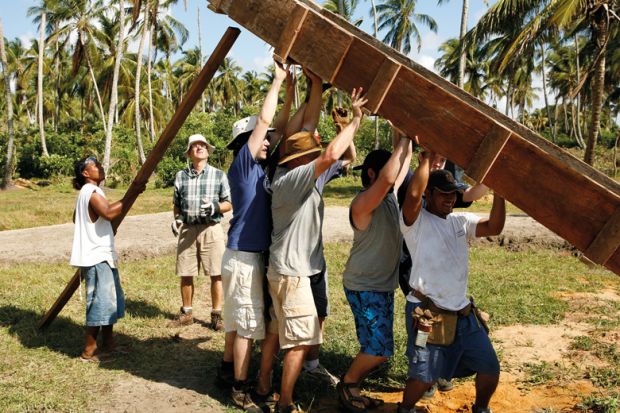A UK university has joined forces with partner institutions in Germany, Slovenia and Spain on a research project designed to help Latin American universities contribute more effectively to economic growth.
The Latin American University Research and Doctoral Support (LAURDS) initiative is a three-year, £630,000 project funded by the European Commission through Erasmus+, which supports schemes for developing educational infrastructure and capacity building within universities.
Glasgow Caledonian University, the project leader, is involved in eight other projects funded through Erasmus+ (more than any other British university), including another in Latin America exploring the benefits of social innovation.
LAURDS aims to develop universities’ links with industry and wider society through improving research capacity and doctoral expertise. Central to this process will be a training toolkit for PhD supervisors and a support network for PhD students.
The European partners are the Hochschule für Technik und Wirtschaft Berlin (Germany), the University of Primorska (Slovenia) and the University of Zaragoza (Spain). They will initially be working with four institutions on the ground: the Fundación Universitaria Panamericana and the University of Ibagué in Colombia, and the Universidad Católica Santa María La Antigua and the University of Louisville in Panama.
David Edgar, professor of strategy and business transformation at GCU’s Glasgow School for Business and Society, who is leading the project for the Scottish institution, said that research infrastructure was "vital for universities if they are to make a meaningful contribution to economies and to society”.
“Latin America has experienced strong economic growth in recent years and this project will enable its universities to play a greater role, sharing knowledge, encouraging innovation and developing commercial activities," he said.
This and related projects, added Mark Anderson, director of GCU’s Europe office, “align perfectly with the university’s vision to have a global reputation for delivering social benefit and impact through education, research and social innovation and relate directly to our strategic goals”.
Funding for LAURDS only came through in January, but the plan is now to create a doctoral network with web support and occasional face-to-face workshops, as well as two conferences and two books.
As the network and materials are developed, it is envisaged that they will become self-sustaining and that tools trialled in Colombia and Panama can be rolled out across Spanish-speaking Latin America.
Register to continue
Why register?
- Registration is free and only takes a moment
- Once registered, you can read 3 articles a month
- Sign up for our newsletter
Subscribe
Or subscribe for unlimited access to:
- Unlimited access to news, views, insights & reviews
- Digital editions
- Digital access to THE’s university and college rankings analysis
Already registered or a current subscriber?




